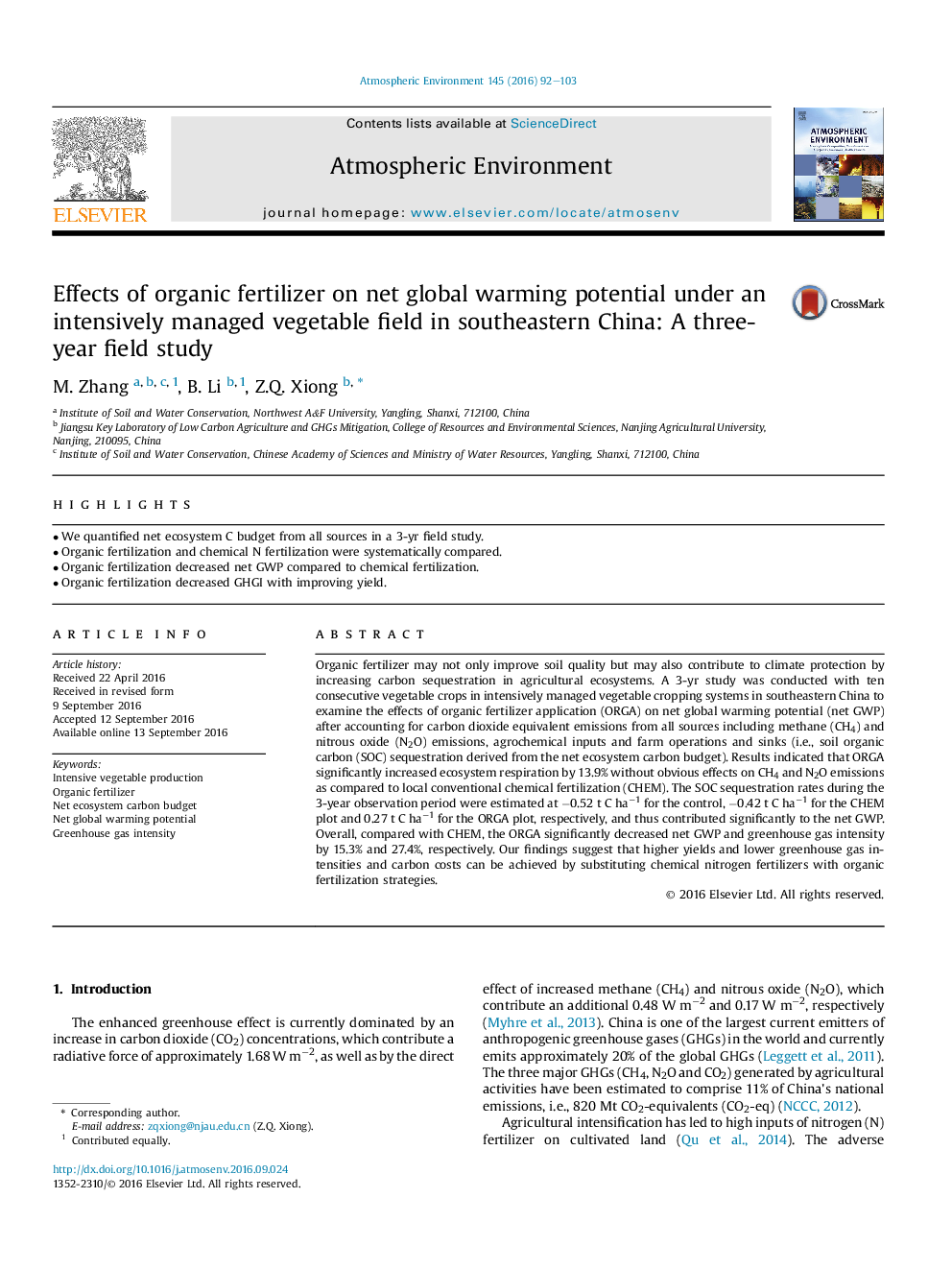| Article ID | Journal | Published Year | Pages | File Type |
|---|---|---|---|---|
| 6335829 | Atmospheric Environment | 2016 | 12 Pages |
Abstract
Organic fertilizer may not only improve soil quality but may also contribute to climate protection by increasing carbon sequestration in agricultural ecosystems. A 3-yr study was conducted with ten consecutive vegetable crops in intensively managed vegetable cropping systems in southeastern China to examine the effects of organic fertilizer application (ORGA) on net global warming potential (net GWP) after accounting for carbon dioxide equivalent emissions from all sources including methane (CH4) and nitrous oxide (N2O) emissions, agrochemical inputs and farm operations and sinks (i.e., soil organic carbon (SOC) sequestration derived from the net ecosystem carbon budget). Results indicated that ORGA significantly increased ecosystem respiration by 13.9% without obvious effects on CH4 and N2O emissions as compared to local conventional chemical fertilization (CHEM). The SOC sequestration rates during the 3-year observation period were estimated at â0.52 t C haâ1 for the control, â0.42 t C haâ1 for the CHEM plot and 0.27 t C haâ1 for the ORGA plot, respectively, and thus contributed significantly to the net GWP. Overall, compared with CHEM, the ORGA significantly decreased net GWP and greenhouse gas intensity by 15.3% and 27.4%, respectively. Our findings suggest that higher yields and lower greenhouse gas intensities and carbon costs can be achieved by substituting chemical nitrogen fertilizers with organic fertilization strategies.
Keywords
Related Topics
Physical Sciences and Engineering
Earth and Planetary Sciences
Atmospheric Science
Authors
M. Zhang, B. Li, Z.Q. Xiong,
